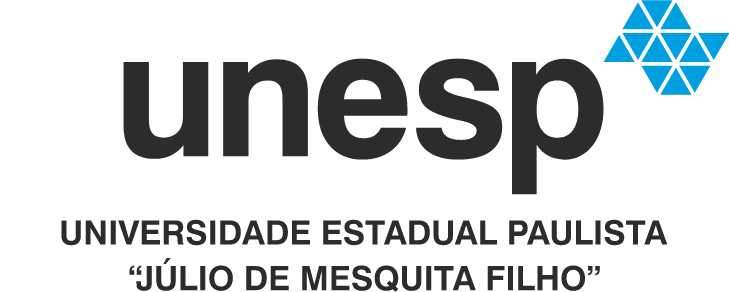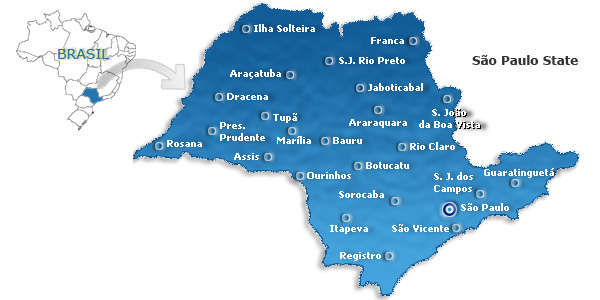As we have remarked in the past, most of the work we do at Global Engagement depends greatly on the assistance and support of our partners around the world. The COVID-19 pandemic and the resulting virtualization of interactions across the world has had the unexpected effect of deepening the relationship between DePaul and our international partners. While in the past we may have waited for opportunities to meet in person at conferences or during dedicated trips, during this past fourteen months our engagement with partners has escalated, virtually.
In this article we introduce one of these partners, the Universidade Estadual Paulista, UNESP for short, in the state of São Paulo, Brazil. This article was written in collaboration with José Celso Freire Junior, Associate Provost for International Affairs at UNESP, and Ana Cristina Biondo Salomão, a professor of English and the coordinator of BraVE, the Brazil Virtual Exchange initiative at UNESP. Both Ana and Celso have become good friends of our team over the years and we are grateful to them for their friendship and partnership.
Founded in 1976, as one of three public universities funded by the government of the state of São Paulo, UNESP is a diverse and vibrant academic community, counting on 3,000 academic staff, about 36,000 undergraduate students, and 15,000 graduate students. Listed among the five largest Brazilian universities, UNESP is one of the most important and respected research-driven higher education institutions in the country, offering free quality education while developing strategic research and interacting with the community through hundreds of projects. UNESP stands out as an example of extreme success among the multicampus institutions around the world with a network of 34 different units spread over 24 cities across the state.

 Image source:https://www2.unesp.br/portal#!/eng/about-unesp/institutional/
Image source:https://www2.unesp.br/portal#!/eng/about-unesp/institutional/
DePaul’s interaction and partnership with UNESP started with our shared commitment to expand equitable access to international experiences for students through Virtual Exchange, known at DePaul as Global Learning Experience (GLE). Ana remarked, “Implementing an institutional Virtual Exchange program can be challenging, but it is an important step to democratize access to internationalization for students who, for different reasons, mostly of a financial nature, would not have access to this rich experience of intercultural encounters.” Celso added, “ In 2018, UNESP embraced FAUBAI’s BRAVE (Brazilian Virtual Exchange) program and launched its VE initiative as part of the Global Talent development component of its comprehensive strategic plan for internationalization.” Our friends at UNESP recognize that DePaul was an important partner for the planning of UNESP's BRaVE Program, by supporting the initial strategic phase of defining leadership and stakeholders to support an institutional initiative. Ana observed, “It was also essential for us to build on this alliance to create the first partnerships for UNESP’s professors and rely on DePaul’s expertise with their professional development workshop to introduce faculty to the virtual exchange pedagogy.” Ana is referring to DePaul’s award winning GLE professional development workshop, open to faculty from institutions across the world.
GLE collaborations developed between UNESP and DePaul include projects in Nanotechnology and Environment, Ecology and Botany, Introduction to Robotics, and North American Literature. Kyle Grice - Chemistry, Christie Klimas - Environmental Science, Isuru Godage - School of Computing CDM, and John Shananan - English, are the DePaul faculty who have implemented these projects.
The reflections and experiences of the early years of the virtual exchange program's activities at UNESP, including three of the partnerships with DePaul’s professors, were brought together in an e-book, “Perspectivas de Internacionalização em Casa: intercâmbio virtual por meio do Programa BRaVE/Unesp,” edited by Ana and Celso. This work addresses the institutional dimension of the implementation of the BRaVE Program, with chapters that deal with the process of creating the program, its implementation by instructors in their classes, and the challenges presented in these stages. “Our hope and goal is that the e-book may contribute to the planning of other higher education institutions that are interested in adopting virtual exchange programs, as well as inspire teachers who want to join the BRaVE Program,” Ana said. The e-book can be downloaded in PDF format at: https://repositorio.unesp.br/handle/11449/202860.
UNESP was also one of the main partners who enthusiastically agreed to participate in our Global Conversations initiative. Ana described the Global Conversations as “an innovative format, involving different higher education institutions around the world, in which professors and students have the opportunity to debate current world issues and share intercultural ideas and experiences.” Reflecting on the project, she added, “ UNESP’s professors and students who took part in the experience highlighted the great opportunity to have contact with participants from different countries and share knowledge and perspectives in a safe environment.”
Professor Irineu de Brito Junior from UNESP was responsible for a session that discussed the crisis on the eve of the 70th anniversary of the Refugee Convention held in the city of Geneva, in 1971. “We discussed the situation and whether the current system can survive the challenge of refugees seeking a safe haven, considering the complicating aspects of climate change and Covid-19,” said the professor at the São José dos Campos campus. Brito Júnior pointed out that the session was attended by students from countries that daily experience the issue of refugees, such as Jordan, Australia and India, and that the discussion even addressed the issue of environmental refugees, something not foreseen in the 1951 convention.
Ana and Celso are proud to observe that “the exceptional response of students and professors that virtual exchange activities generated proves that UNESP's choice to focus its internationalization at home activities on its BRaVE program was correct and should continue.”
UNESP is now expanding its support structure, seeking to become, like DePaul, a reference point for virtual exchange in Brazil and Latin America. Celso observed, “In the same way that DePaul helped us in our initial steps, we intend to support other institutions to launch this initiative which is at the same time challenging but brings excellent results for the internationalization of higher education institutions.”
We are happy to have been able to partner with UNESP at the start of their virtual exchange adventure and we wish them success in their efforts to further spread our joint mission of equity and access to global learning.